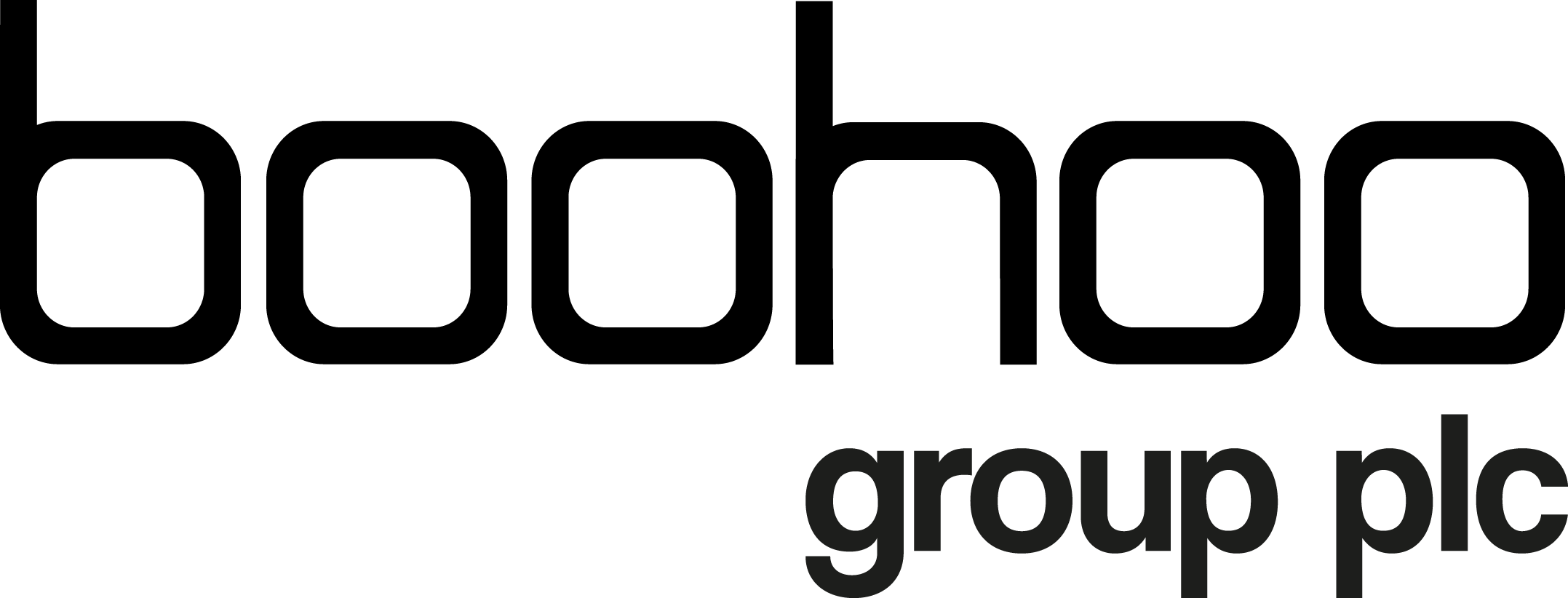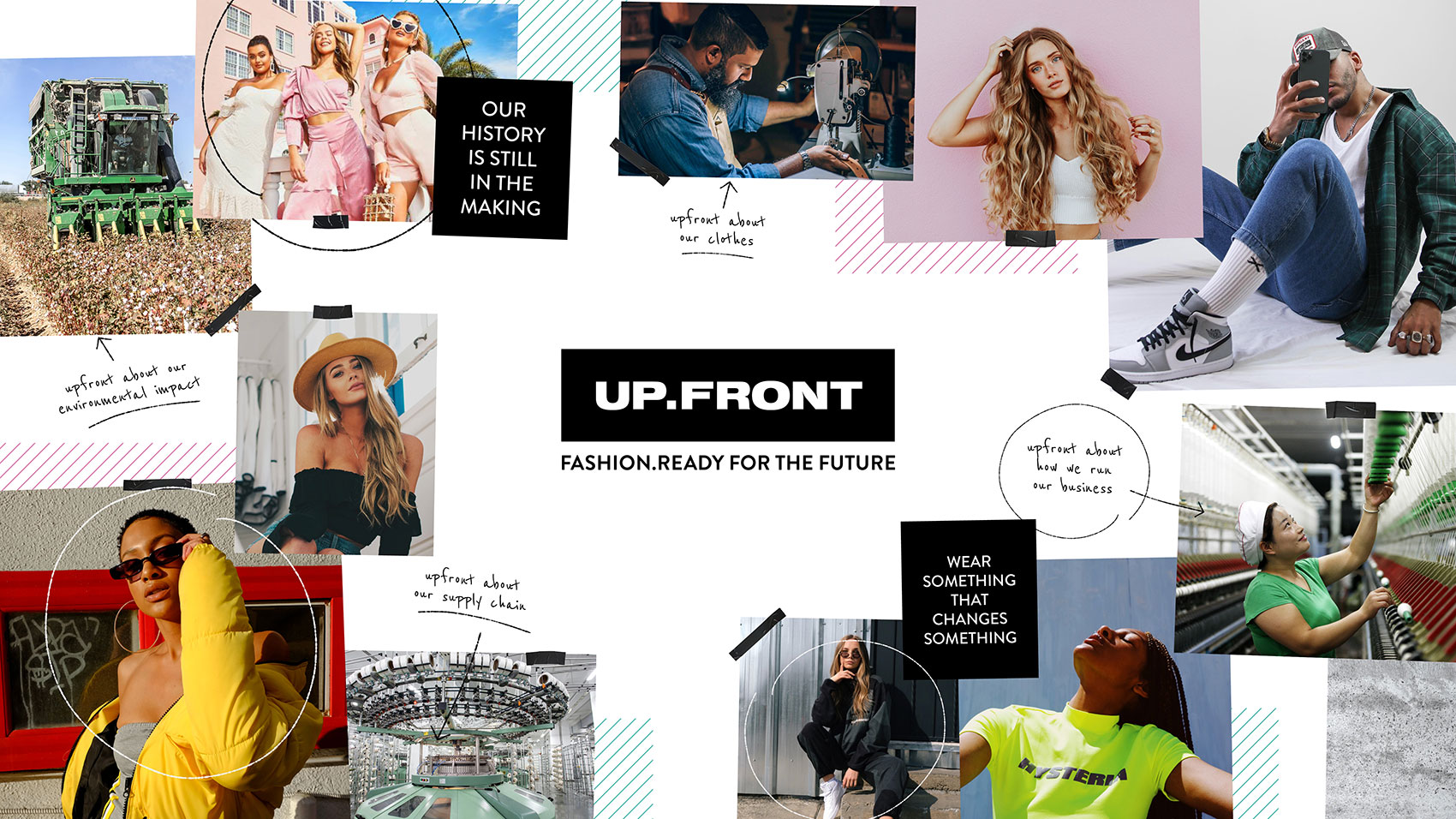Clothes.Made Smarter
We know there’s an environmental and social cost to producing clothes, but there are ways we can be smarter and leave a lighter footprint.
We’re focusing our efforts in the areas that stand to deliver the biggest impact on creating more sustainable fashion - materials, design, waste, packaging and finding ways to keep our clothes in use for longer.
We have grouped water, chemicals, biodiversity and microfibres in our area of Future Focus. We have started to make progress on these topics and will further develop our plans in the upcoming year.



*More sustainably sourced includes organic cotton, Better Cotton, recycled or Cotton Connect.
Better materials
We’ve set a bold ambition for all the materials we use in our clothes to be more sustainably sourced by 2030.
We’ve continued to analyse our material mix. Together, Polyester and Cotton account for over 85% of the fibres we use, so it’s important that we tackle these first. We are now members of the Better Cotton Initiative (BCI) and through our partnership with CottonConnect we are sourcing Responsible Environmental Enhanced Livelihoods (REEL) cotton. REEL Cotton is responsibly grown to reduce the impact of cotton farming on the environment while working directly with farmers to create positive social impact and improve livelihoods.
We’ve developed a better materials guide, which sets out our priority materials and preferred alternatives. This list covers polyester, cotton, viscose, and animal-derived products. We are working closely with our Fabric Manager to identify opportunities for consolidation each season by looking at materials in use across the group. This allows us to transition to more sustainably sourced materials at affordable prices for our customers.
We have launched READY FOR THE FUTURE product lines & collections across all of our brands. As of year-end 2021, 1 in 5 of our products on order across the group contained one or more of our more sustainability sourced materials. Click here to learn more about the READY FOR THE FUTURE GUIDELINES.
We remain members of the Sustainable Apparel Coalition and Textiles 2030. We will continue to leverage our industry associations to gain sustainability insights and further understand the impacts of materials.
Textile waste
Our clothes are made from valuable resources and we want to keep them in use for as long as possible.
Our test and repeat model means that we have very little ‘post-production’ waste. We order small quantities of each item, and only re-order the lines that are selling well.
We have a number of programmes in place that help to diver textiles from landfill through resale and rental platforms:
- PrettyLittleThing Marketplace is undergoing platform testing. It will allow customers to sell the clothes that they no longer love, but have lots of life left in them.
- Oasis has launched a pilot with Thrift+ in April. ThriftBags will be available to order for free on the Oasis website. Customers will be able to send their unwanted clothing to Thrift+ who will quality assess, photograph and publish products for resale on their website.
- Oasis is now available on rental platform HireStreet. Customers can now rent Oasis occasionwear, workwear and holiday outfits from the Hiresteet platform.




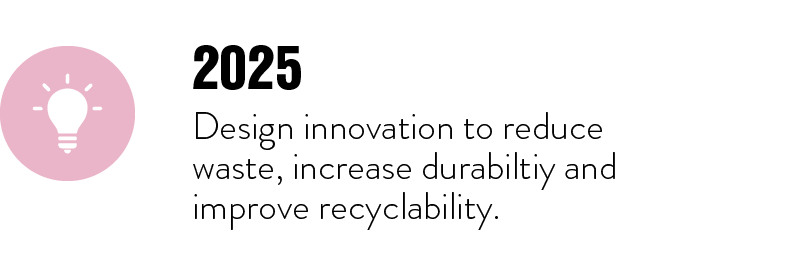
Sustainable design
Better materials is one way that we can reduce the impact of the products we sell, but we are also committed to designing products differently to see if we can reduce waste, improve durability or increase recyclability.
To improve the durability and quality of our product, we conduct quality and compliance testing. With the launch of the boohoo lab, we now have an in-house textile & apparel laboratory which is working with our suppliers to conduct these tests in-house.
Putting our knowledge of circular principles into practice we have launched upcycled and repurposed collections. We will continue to explore opportunities for collections that minimise waste.
Our product sustainability specialists are conducting sustainable design, responsible sourcing, and circularity training with our design and buying teams.
Packaging
In setting consistent standards across our brands we have introduced labelling supplier options that our garment suppliers can go to for more sustainable packaging and labelling. We have also developed a labelling manual for each brand and a supplier manual.
This year across all our brands we’ve implemented measures to increase the use of recycled content in our labelling. We have reduced the size of our swing tickets and removed non-recyclable finishes. We are helping our suppliers transition to using swing tickets made from 100% recycled card and care labels made from 100% recycled polyester.

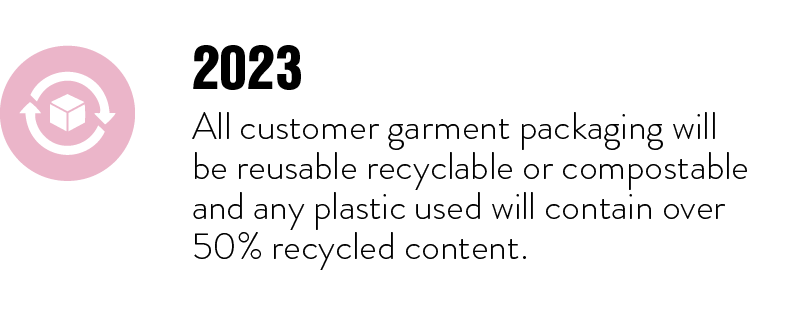

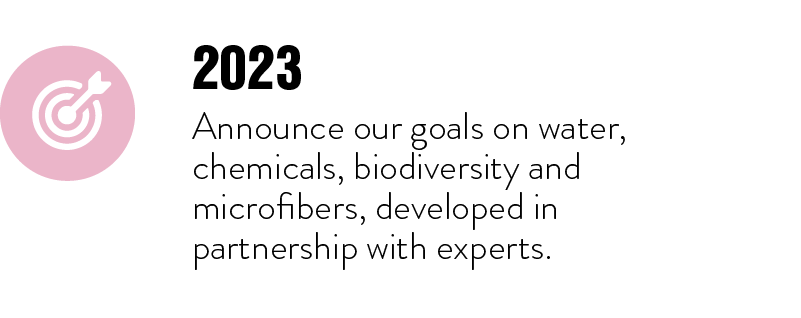
Future focus
We have started to make progress in our Future Focus areas.
Our Sustainability Hub launched in February 2022 and contains information on product care to extend product lifetime, help reduce the impact of garments during the use phase and reduce microfibre shedding.
Chemicals
In January 2022 we launched boohoo lab our in house textile & apparel laboratory based in our Manchester Head Office. boohoo lab’s capabilities range from data collection, testing, due diligence and training. Our testing methodology is in line with Global Restricted Substance Laws: REACH (UK & EU) and Cal Prop 65 (USA).
Microfibres
As part of our membership of the Microfibre Consortium we are selecting some of our key recycled fabrics that our UK suppliers use in our garments. We will be carrying out tests on these samples and the results will feed into the microfiber consortium’s database.
Water
As part of our supply chain environmental programme, our top suppliers are collecting data on their water use.
Biodiversity
Through our partnership with CottonConnect we are growing fully traceable, REEL cotton in Pakistan and training the farmers in agricultural management practices that help to reduce environmental impact. As a result of the improved farming practices, there is early indication of the return of honeybees on the REEL cotton farms.
In the year ahead we will work on publishing our Restricted Substance List (RSL), developing a water stewardship strategy, and risk mapping of key sourcing locations.
